The Executive Summary of the CETO2024 launched at COP 29
On November 13, the Workshop on China Energy Transformation and New Energy Development – Launch of China Energy Transformation Outlook 2024 (CETO2024) and other publications, was successfully held at the China Pavilion of the 29th Conference of the Parties to the United Nations Framework Convention on Climate Change (UNFCCC COP29) in Baku, Azerbaijan. The CETO2024 launch event was jointly hosted by the Energy Research Institute of the Chinese Academy of Macroeconomics (ERI of AMR) and China Energy Engineering Group Co., Ltd. (CEEC) and co-organised by the Institute of Climate Change and Sustainable Development of Tsinghua University (ICCSD) and the Investment Association of China (IAC).
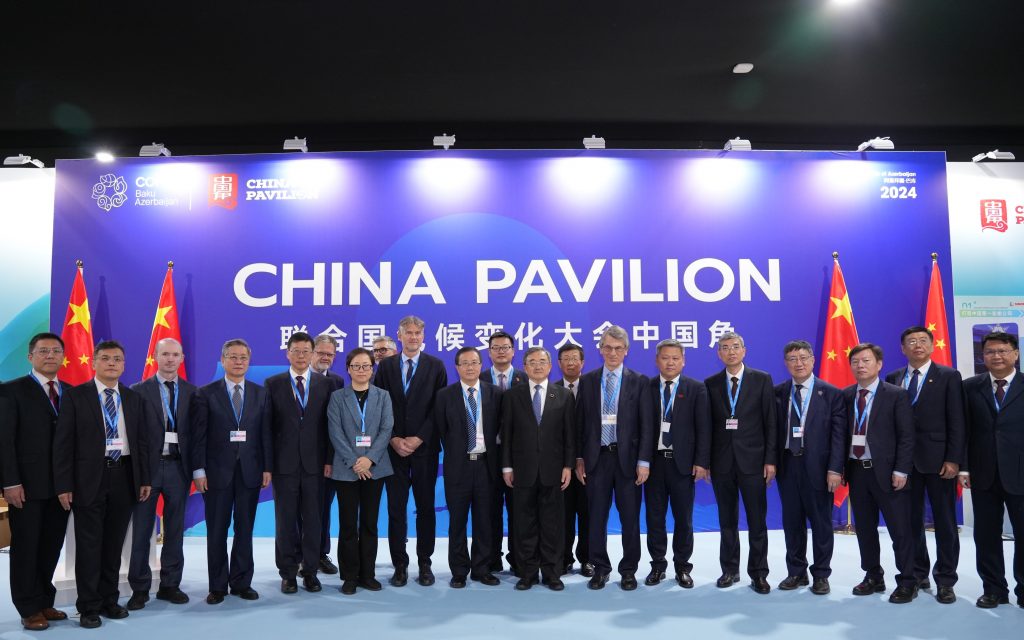
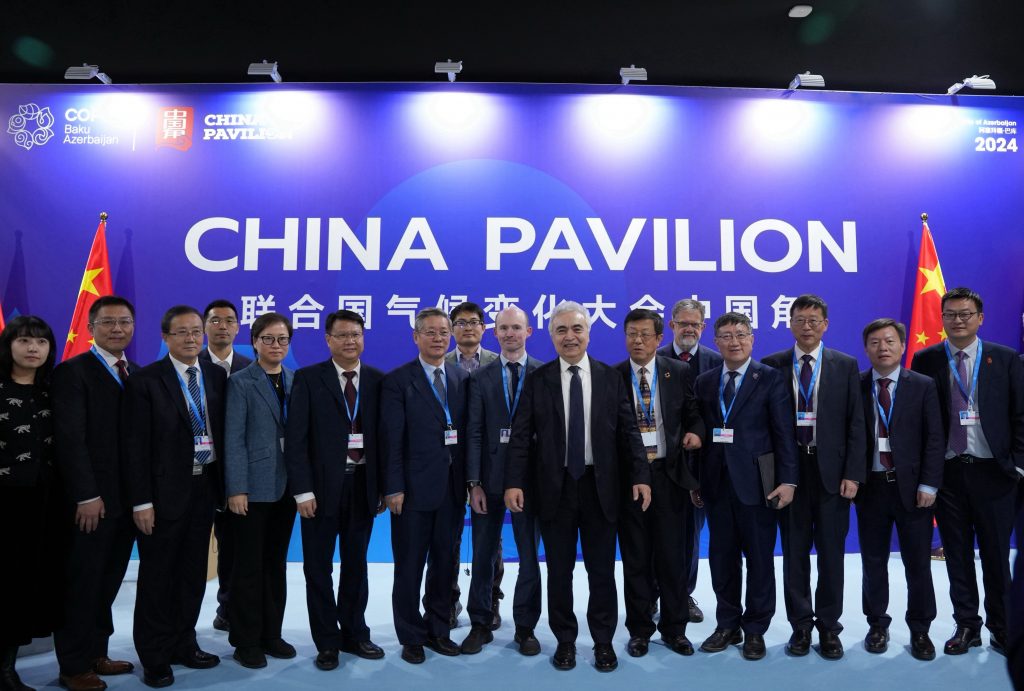
Group photos
Zhenmin Liu, China’s Special Envoy for Climate Change, Fatih Birol, Director General of the International Energy Agency (IEA), Ole Thonke, Under-Secretary for Development Policy at the Danish Ministry of Foreign Affairs, Hua Wen, Deputy Director-General of the Department of Resource Conservation and Environmental Protection at National Development and Reform Commission (NDRC) of China, Minfeng Xiong, Deputy Director-General of the International Cooperation Department at National Energy Administration (NEA) of China, and Hongpeng Lei, Global Director of the Climate, Children’s Investment Fund Foundation (CIFF) attended the meeting and delivered speeches. Rui Guo, Deputy Director-General of the International Department of the NDRC, also attended the meeting.
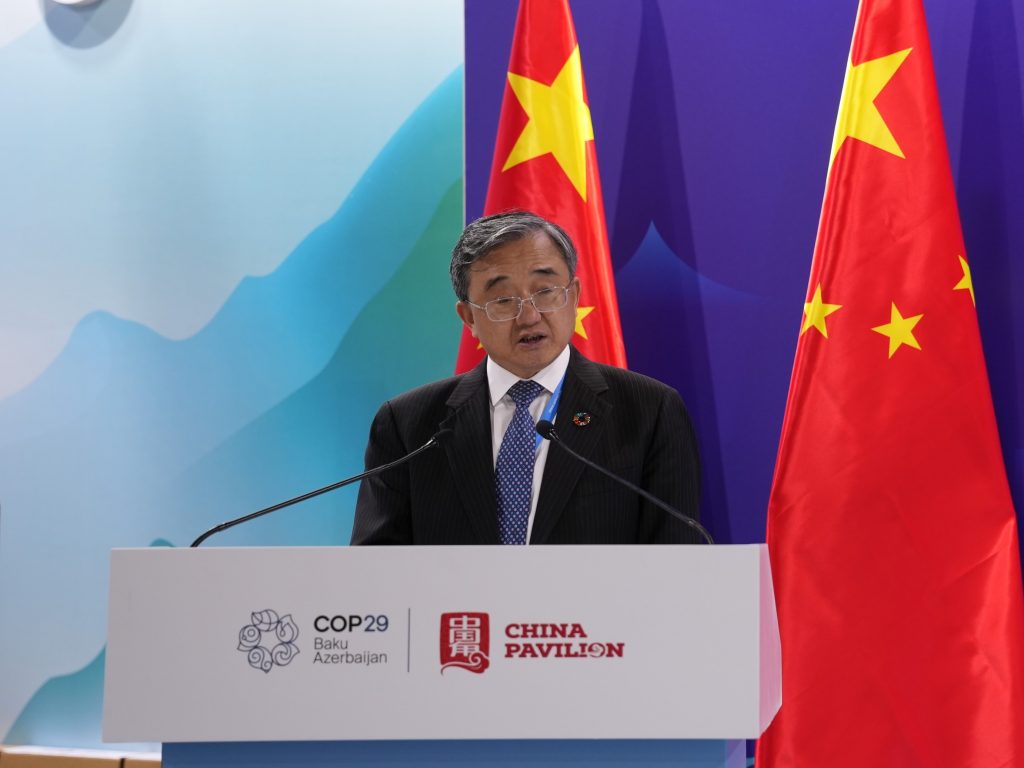
Zhenmin Liu, China’s Special Envoy for Climate Change
Speicial Envoy Zhenmin Liu pointed out in his speech that climate change has had a serious impact on the global natural ecosystem and has continued to spread and penetrate the economic and social system. Actively adapting to climate change, promoting energy transformation and green and low-carbon development have become important global tasks at present and in the future. Since China solemnly declared its “dual carbon” goals to the world, in four years, China has firmly promoted energy transformation and has achieved remarkable results. China has also made outstanding contributions to the global response to climate change and green transformation. The special Envoy also said that China Energy Transformation Outlook 2024 (CETO2024) is an example of cooperation between China and Denmark and China and the United States, and looks forward to proposing forward-looking and innovative solutions for low-carbon transformation of energy.
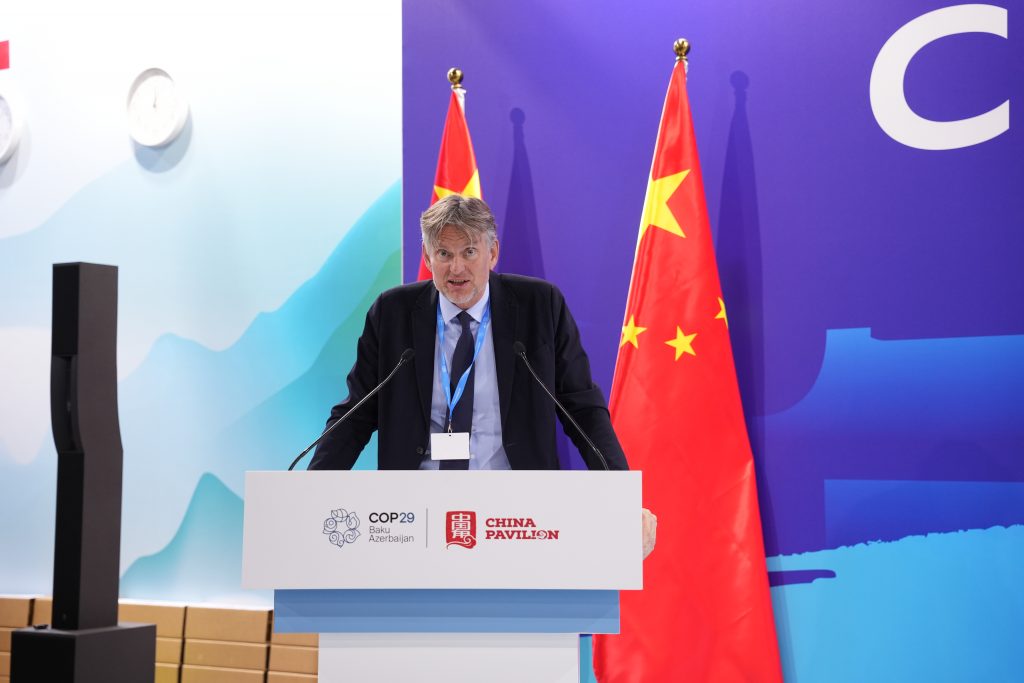
Ole Thonke, Under-Secretary for Development Policy at the Danish Ministry of Foreign Affairs
Ole Thonke, Under-Secretary for Development Policy at the Danish Ministry of Foreign Affairs, said that China and Denmark launched the “Green Joint Work Program” last year, making addressing climate change and promoting energy transformation one of the core of bilateral cooperation. Both China and Denmark have set positive energy transformation goals, explored transformation paths based on energy security, and worked hard to narrow the gap between practice and vision. CETO2024 is the result of close cooperation between China and Denmark. It aims to study the low-carbon transformation path and optimal development plan of China’s energy system. It is hoped that the research results will provide guidance for the energy transformation of China, Denmark and the international community.
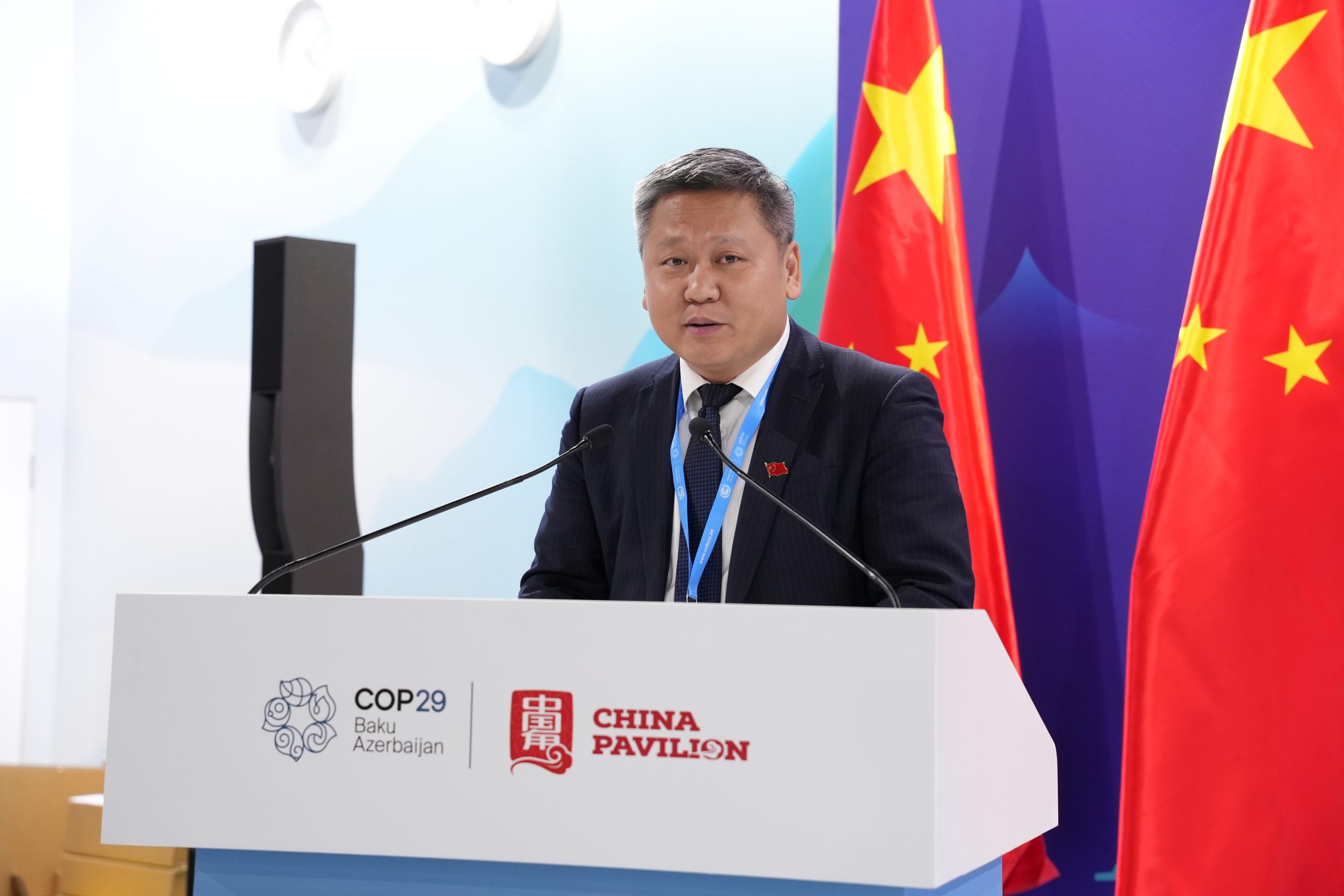
Hua Wen, Deputy Director-General of the Department of Resource Conservation and Environmental Protection at the National Development and Reform Commission
Hua Wen, Deputy Director-General of the Department of Resource Conservation and Environmental Protection at NDRC of China, said that energy is an important basis for economic and social development, the major source of carbon emissions and a key area of green transformation. Under the guidance of the new energy security strategy of “Four Revolutions and One Cooperation”, China’s energy transformation and development has achieved positive results and has embarked on a path that conforms to the global trend, China’s national conditions and the requirements of the era. He stressed that China will adhere to comprehensive transformation, coordinated transformation, innovative transformation, and safe transformation, and will unswervingly promote green and low-carbon development of energy and make greater contributions to addressing climate change.
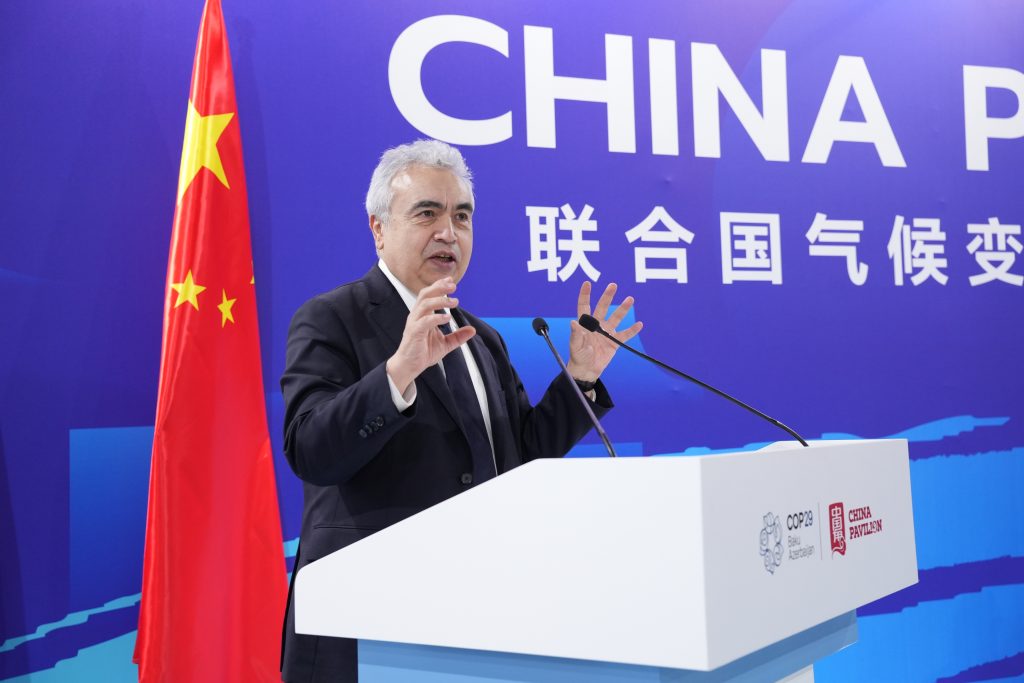
Fatih Birol, Director General of the International Energy Agency
Fatih Birol, Director General of the IEA, said that the world is accelerating from the coal and oil eras to the electricity era, and this change will also reshape the global industrial layout. China is a global leader in clean energy, and the rapid growth of China’s clean energy production capacity is not only beneficial to China, but also to the world. China’s energy transformation is still facing great pressure. It is hoped that China will further accelerate scientific and technological innovation and application, and help the international community benefit from China’s green development while accelerating its own energy transformation.
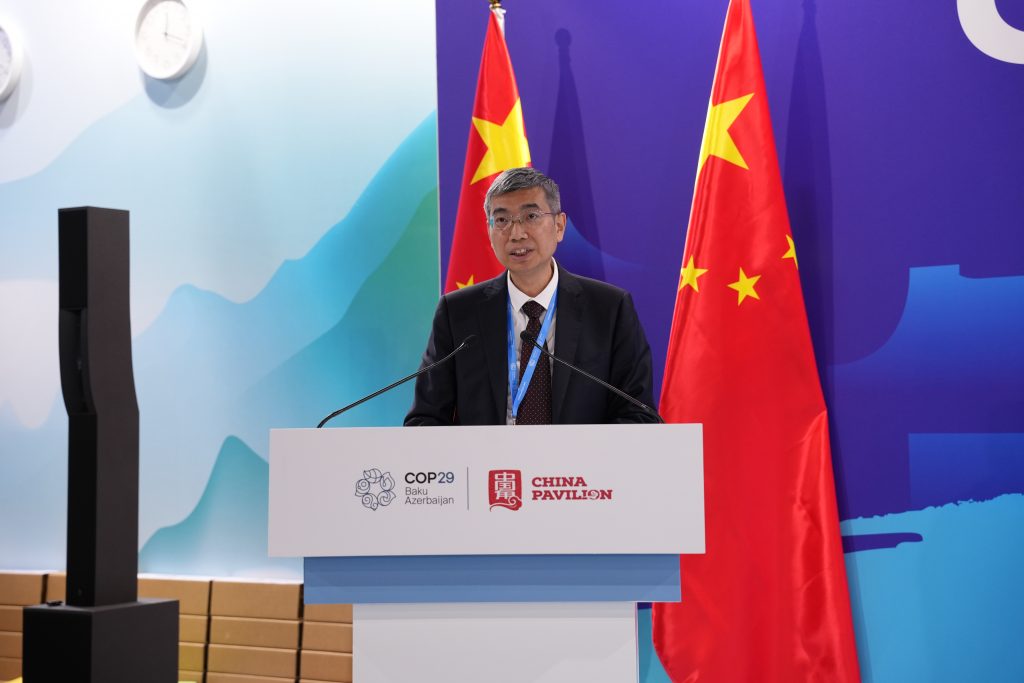
Minfeng Xiong, Deputy Director-General of the International Cooperation Department at the National Energy Administration of China
Minfeng Xiong, Deputy Director-General of the International Cooperation Department at NEA of China, said that China has vigorously promoted the development of new energy and built the world’s largest clean power generation system. China’s renewable energy industry has accelerated the promotion of a larger and deeper energy transformation with its innovative advantages and excellent quality. Last week, China has formally voted and passed the Energy Law, providing a strong legal guarantee for accelerating the construction of a clean, low-carbon, safe and efficient new-type energy system. He called on all countries to work together to enhance policy and experience sharing, promote clean energy technology exchanges, maintain a fair and non-discriminatory clean energy trade and investment environment, and jointly promote the global green and low-carbon energy transformation.
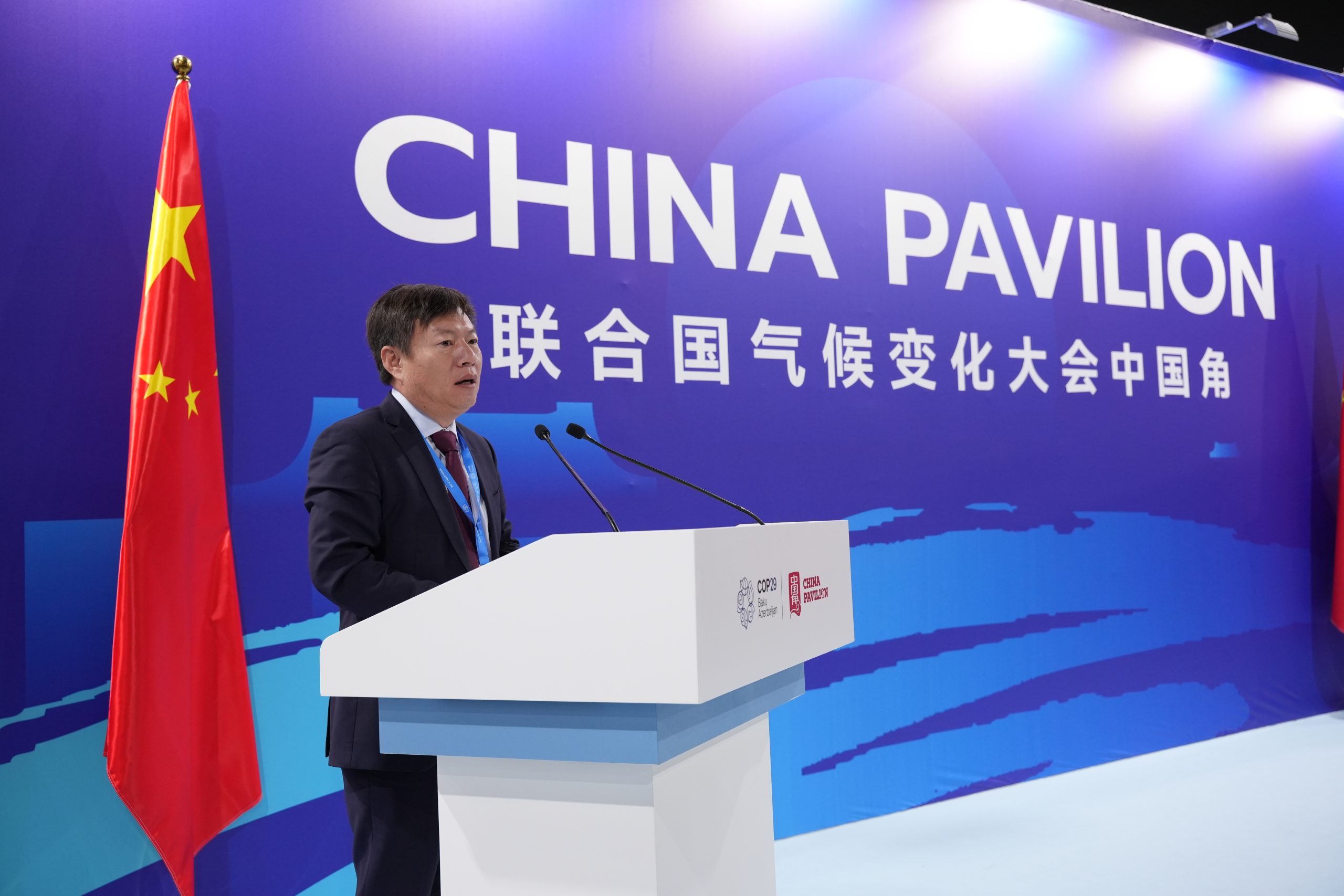
Hongpeng Lei, Global Director of the Climate, Children’s Investment Fund Foundation
Lei Hongpeng, Global Director of the Climate, CIFF, said that the China Energy Transformation (CET) programme, jointly carried out by institutions and experts from China, Denmark, the United States and other countries, provided a platform for building consensus and sharing experiences, and put forward suggestions for solutions and transformation paths for China’s net-zero emissions energy system. It is a positive result of international cooperation on energy transformation.
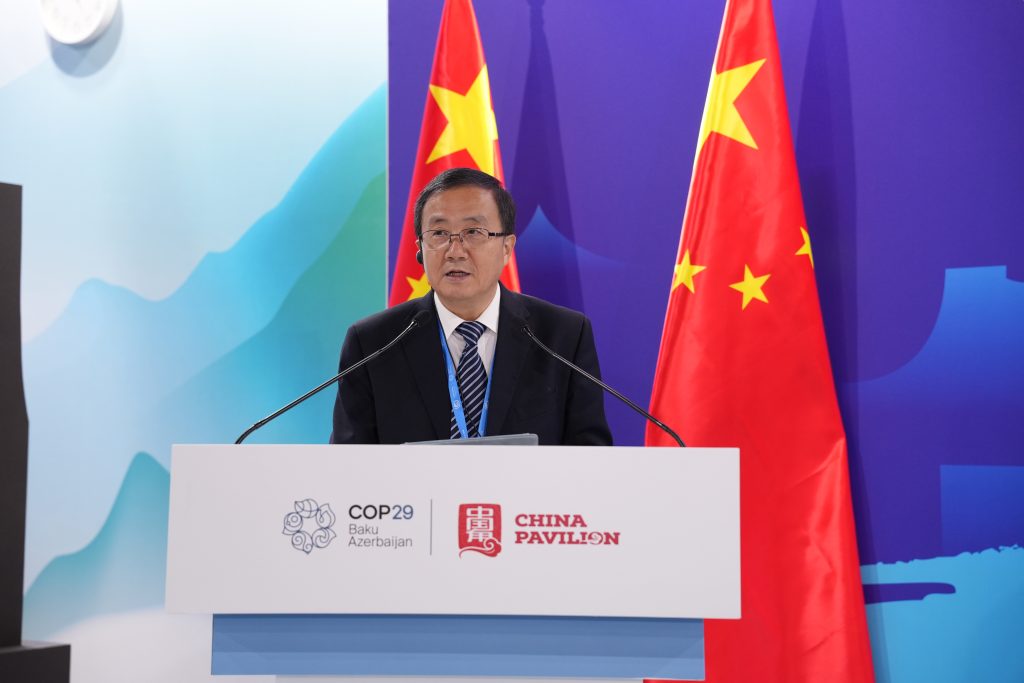
Wenbin Lyu, Director General of the Energy Research Institute of the Chinese Academy of Macroeconomics
Wenbin Lyu, Director General of the ERI of AMR, moderated the side event. Experts from Columbia University, Climate Action Advocates of the United Nations, International Society for Energy Transition Studies, Chinese Academy of Sciences, China Association of Circular Economy, Sun Yat-sen University and other relevant domestic and foreign institutions attended the meeting.
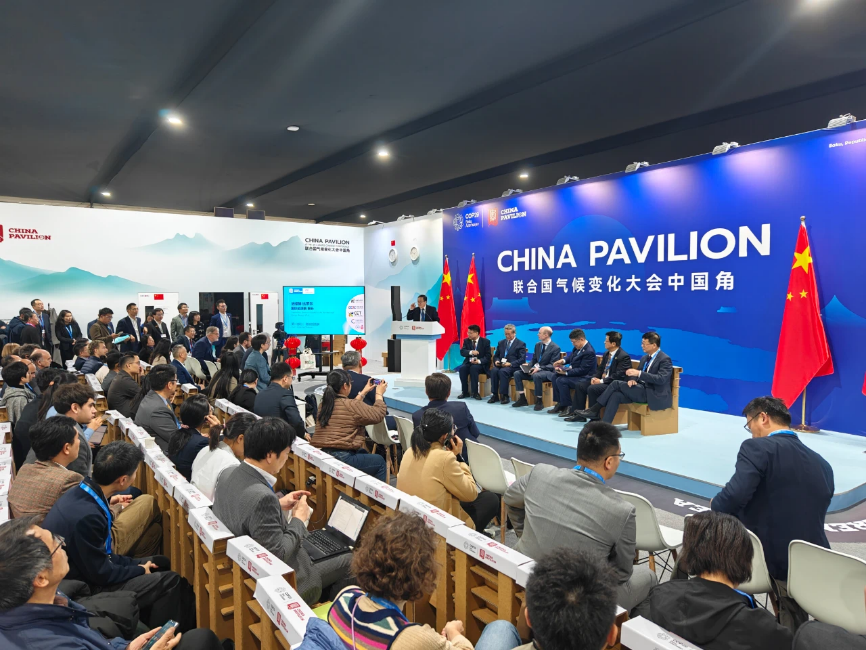
The side event at China Pailion, COP29
In the keynote speech session, Quan Bai, Director of the Energy Efficiency Centre of the ERI, introduced the outstanding achievements made in China’s new energy development, the latest achievements of energy transformation, and the major policies to promote energy transformation. On this basis, the Executive Summary of the CETO2024 report (hereinafter referred to as the Executive Summary) was launched. The Executive Summary summarizes the global energy transformation trends in recent years, systematically analyses China’s energy production and consumption transformation prospects, and focuses on the paths and technical solutions for China to achieve net-zero carbon emissions in the energy system under different international cooperation situations. As part of the tripartite collaborative study between the ERI, the Danish Energy Agency (DEA), and the Center on Global Energy Policy (CGEP) at Columbia University in the United States, the Executive Summary also introduces the energy transformation experiences of Denmark and the United States.
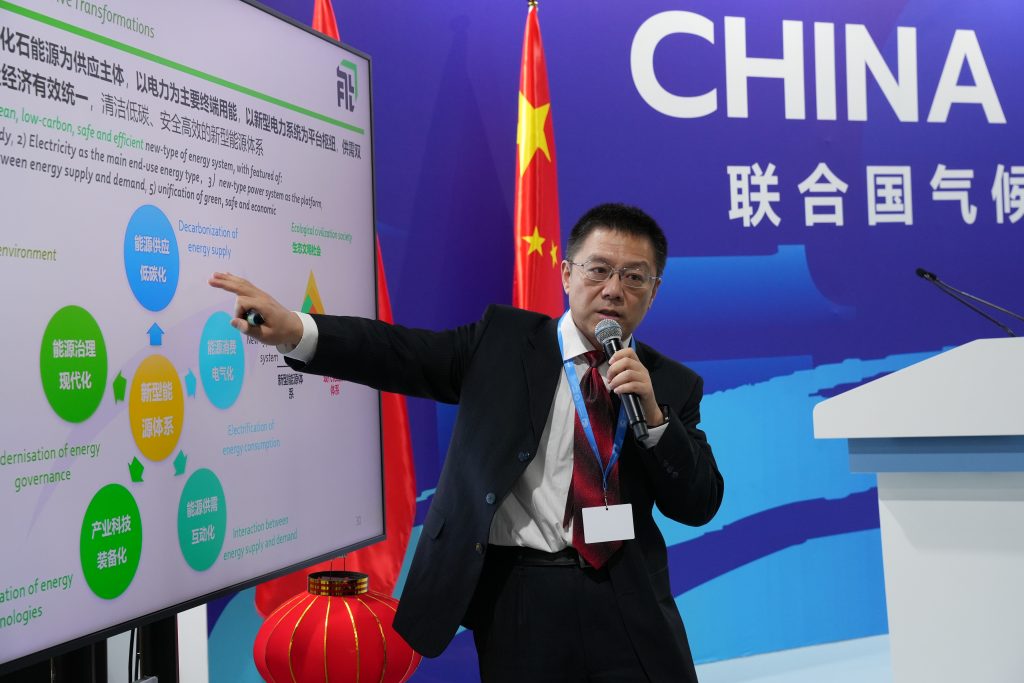
Quan Bai, Director of the Energy Efficiency Centre of the Energy Research Institute of the Chinese Academy of Macroeconomics
The Executive Summary‘s main conclusions show that the energy transformation can make a decisive contribution to China’s efforts to achieve a carbon-neutral society before 2060. Under the Baseline Carbon Neutrality Scenario (BCNS) and the Ideal Carbon Neutrality Scenario (ICNS), with the accelerated development of energy transformation technologies (including negative carbon technologies such as carbon capture) and related industries, China’s energy system can achieve net- zero carbon emissions before 2060, paving the way to make the Chinese society as a whole carbon neutral before 2060. China should advance its energy transformation across five areas: electrify energy consumption and improve energy efficiency, decarbonise energy supply, enhance interaction between energy supply and demand, industrialise energy technologies, and modernise energy governance. At the same time, China should strengthen international cooperation on energy transformation, jointly explore the path of energy transformation with the global community and contribute China’s strength to global energy transformation.
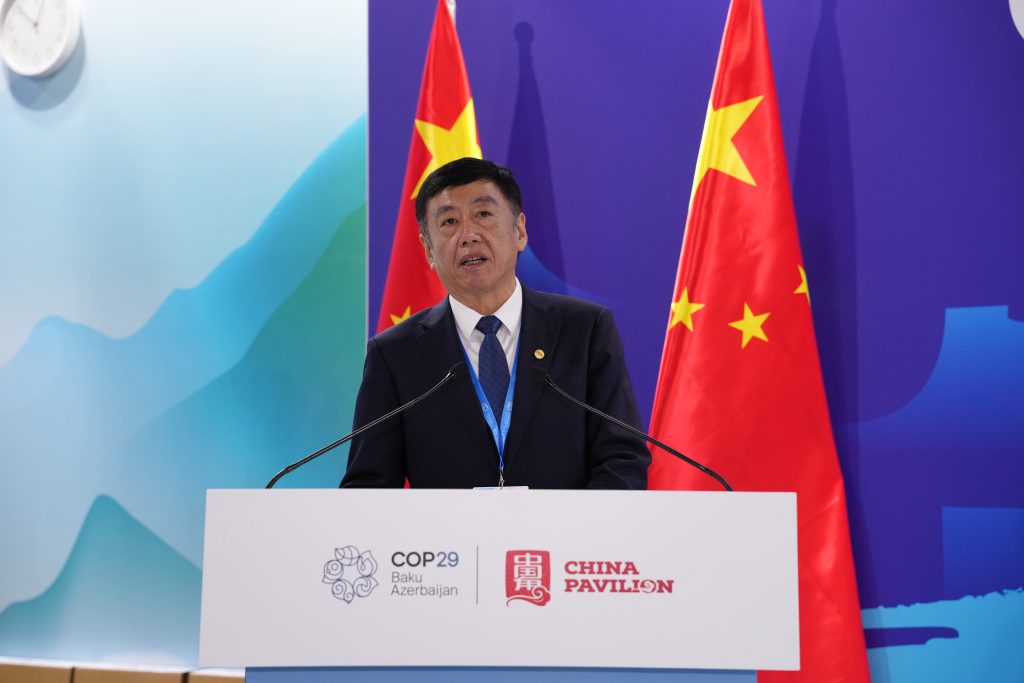
Danfeng Xue, Deputy chairman of the China Energy Engineering Group Co., Ltd.
Danfeng Xue, Deputy chairman of CEEC, introduced that as one of the world’s largest comprehensive solution providers and infrastructure investment contractors in the energy and power industry, CEEC has accelerated its transformation and development in four major directions: innovation-driven, green and low-carbon, digital intelligence, and shared integration. Green energy represented by wind power and solar PV has become an important pillar and growth pole of CEEC’s overseas business. CEEC is willing to work with all parties to adhere to the same ambition, the same direction, mutual benefit and win-win cooperation, and integrated development, to work together to create a more recognizable green model, promote more leading green cooperation, and to set up a more growing green industry.
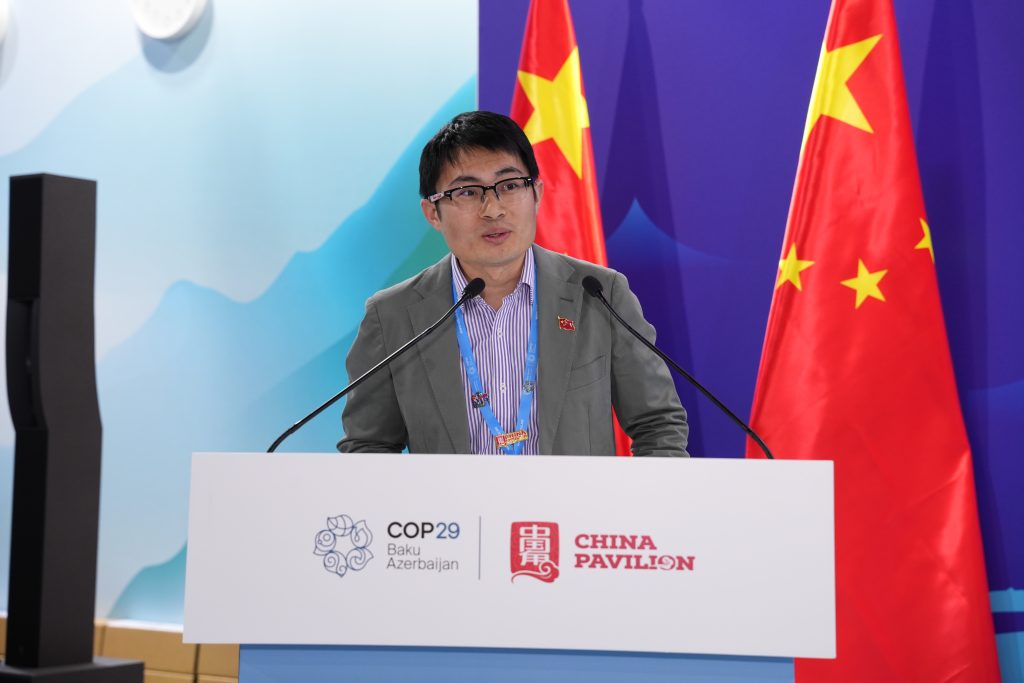
Tianduo Peng, Director of Transport and Industry Research at Institute of Climate Change and Sustainable Development of Tsinghua University
Tianduo Peng, Director of Transport and Industry Research at ICCSD of Tsinghua University combined the promotion of the integrated development of transportation and new energy in his speech, and elaborated on the important role of a high proportion of new energy in the deep decarbonization of transportation and emission reduction of the new energy vehicle supply chain in the long-term low-carbon transformation. He also introduced the research results of the ICCSD in the transformation path of energy demand side, the technical roadmap of the new power system, and the integrated development of hydrogen energy and steel at high temporal and spatial resolution.
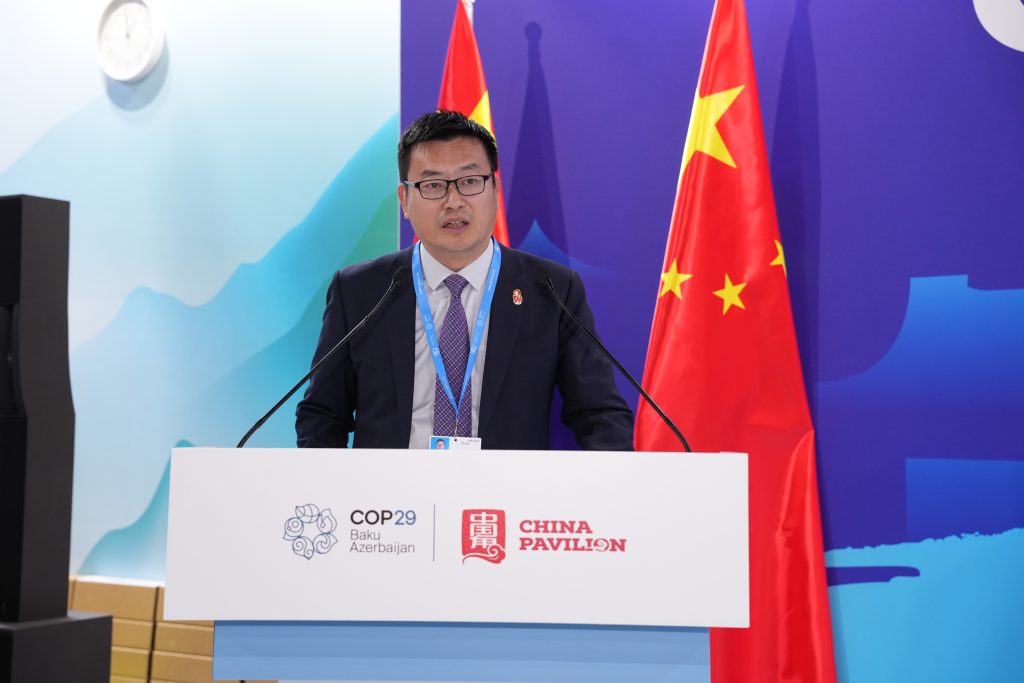
Jie Zhang, Deputy Chairman and Secretary General of the Energy Investment Committee of the Investment Association of China
Jie Zhang, Deputy Chairman and Secretary General of the Energy Investment Committee of the IAC, introduced the achievements of the Belt and Road Initiative in promoting green development and energy transformation in countries along the route, and suggested that zero-carbon cooperation with equal emphasis on “going out” and “bringing in” be carried out under the Belt and Road Initiative to achieve mutual benefit and win-win results. At the same time, attention should be paid to challenges such as country risks, financing issues, standard differences, localization issues, infrastructure conditions and peer competition faced in the investment process.
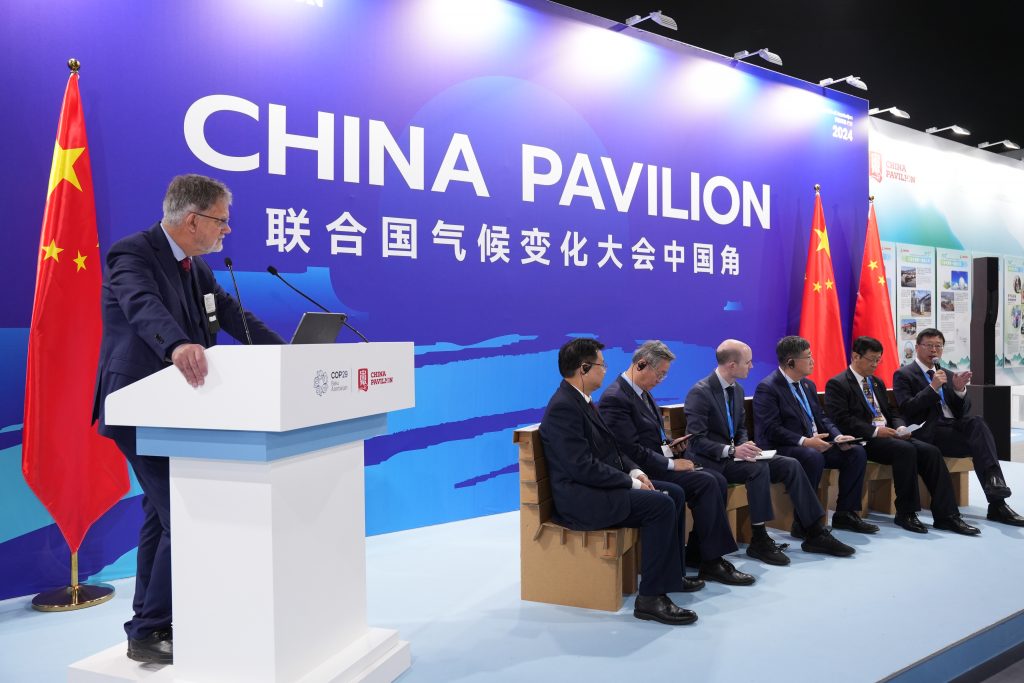
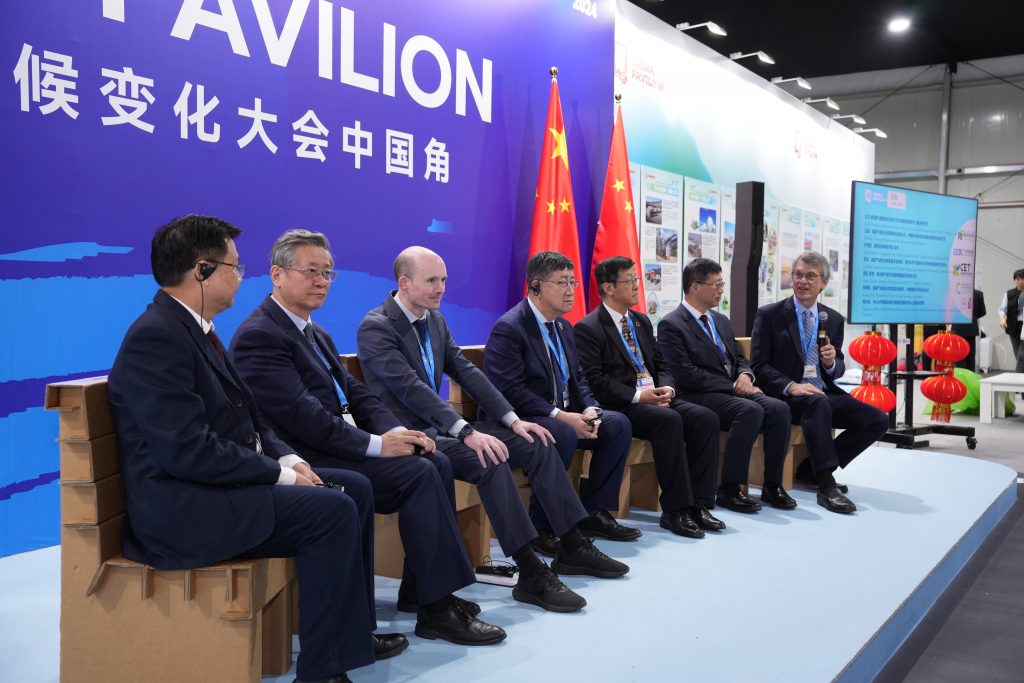
Kaare Sandholt, the Chief International Expert of the CET programme, moderated the panel discussion session
Kaare Sandholt, the Chief International Expert of the CET programme, moderated the panel discussion session, together with seven other experts to jointly exchange and discuss topics such as global energy transformation trends, the contribution of energy transformation to China’s economy, the challenges China faces in accelerating the development of renewable energy, the potential for China’s biomass development, the prospects for China’s industrial green transformation, Guangdong Province’s new energy development path, and the highlights of the Executive Summary research results were discussed and many constructive opinions and suggestions were put forward. Panelists include David Sandalow, the Inaugural Fellow at the CGEP; Yi Wang, Deputy Director of the National Expert Committee on Climate Change, Research Professor of the CAS; Xiansheng Sun, President of the International Society for Energy Transition Studies (ISETS); Zheng Li, Dean of the ICCSD; Simon Sharpe, Director of Economics at UNFCCC Climate Champions; Liyang Zhu, President of China Circular Economy Association; and Yongzhang Zhou, Chief Scientist of the Research Center for Earth Environment & Resources of Sun Yat-sen University.

